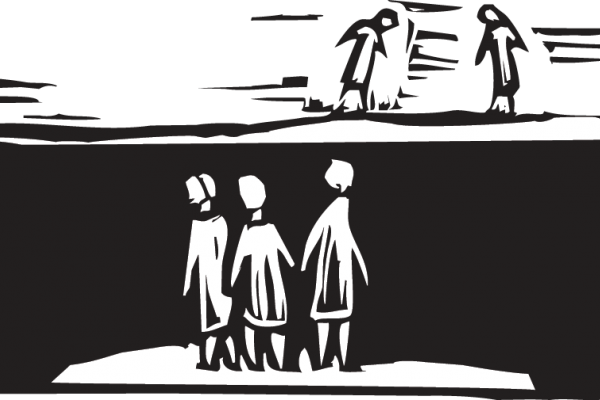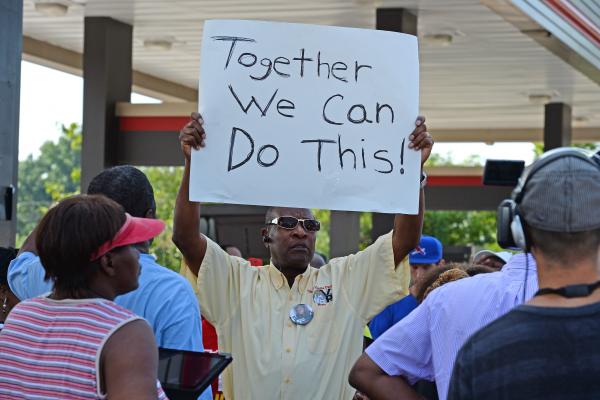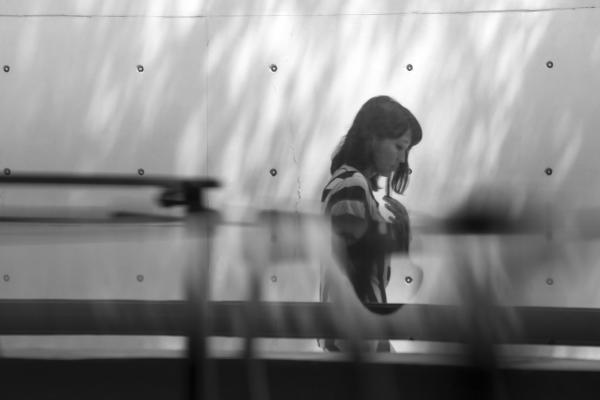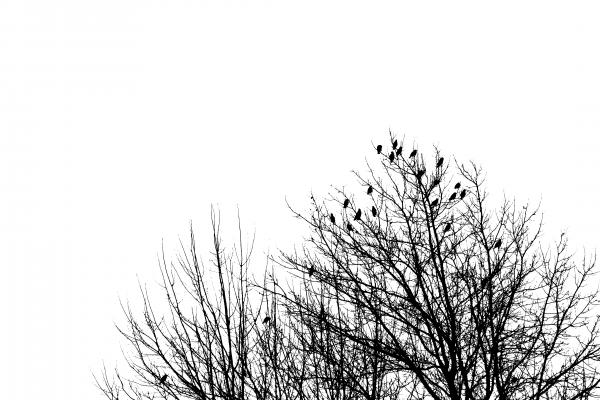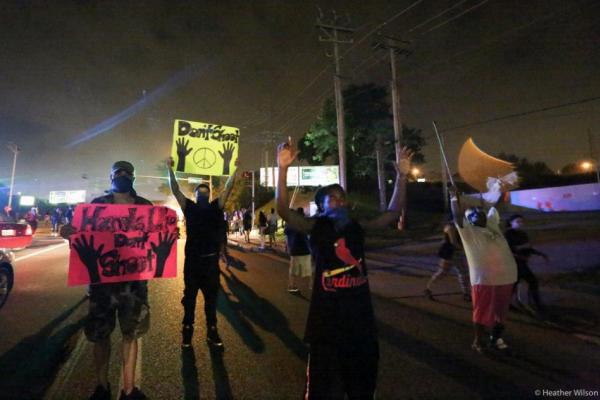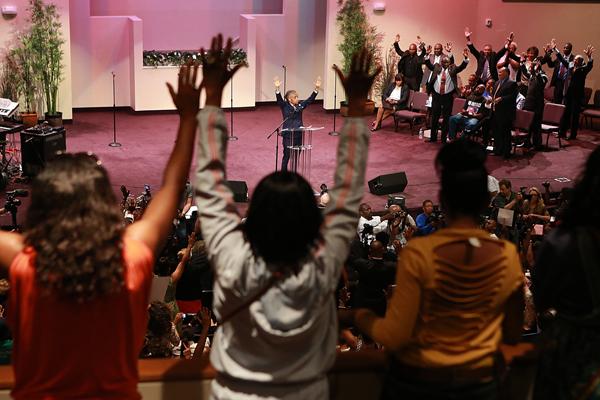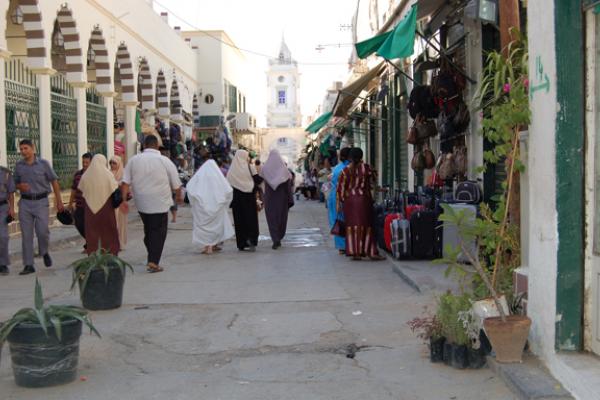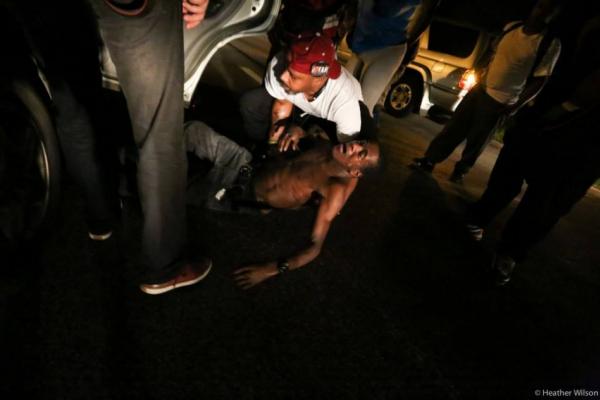In recent years, my family has navigated some rough patches: death, cancer treatments, open heart surgeries, chronic disease, etc. Now, I’m certain this isn’t everyone’s experience, but mine has been that in these times of trauma or tragedy, family comes together to stand with one another as we wrestle through life’s crap. We aren’t picking fights, we are crying on each other’s shoulders.
In recent months, our human family has been enduring an especially rough patch.
War.
Racism.
Suicide.
Deadly viruses.
Plane crashes.
Whether in remote villages or urban centers, few have been untouched (in some way) by the realities unfolding.
As I observe our corporate response to tragedy as a human family, and evaluate my own response in the midst of it, I have noticed something disturbing unfold. Rather than rally together as a family navigating a season of trauma, we have used this moment to divide, stir hatred and misunderstanding, point fingers, and more than anything, view those on the opposite side of an issue as less than human.
It was July 19, 2013, and we were leaving New York City for a spiritual retreat, six days after a Florida jury found George Zimmerman “not guilty” in the death of Trayvon Martin. The sadness, anger, and weariness was well worn on the liturgies, prayers, and preaching of many of the churches in our Harlem neighborhood.
We found ourselves joining local church leaders and a few pastors in a conversation about justice that would eventually make its way toward a broad range of matters: the gay rights of questioning teens, clean water for children in Africa, and many of the frequent places conversations go with folks who are concerned with “loving our neighbor.” And so we sat, we listened, and were genuinely moved to openly share about the challenges and opportunities that have come with cultivating safe spaces for GBLT folks in our church community. TOGETHER we also inspired one another as we offered our collective experiences with integrating the arts in fundraising for international relief efforts.
And as Jose and I sat, listened, and shared TOGETHER, we found ourselves with heavy hearts waiting …“Would the conversation broach the tragedy of Trayvon Martin?” It didn’t.
And as we sat TOGETHER in sacred solidarity with compassionate, justice-minded pastors, who happened to be white, somehow we found ourselves feeling quite alone. So we mustered the courage to ask, “How have your churches responded to the Trayvon Martin verdict?” My question was met with silence. The silence that met us did not betray aloof or timid spirits, but rather uncertainty about whether their one voice could really make a difference, or that somehow they did not have the right to “speak on behalf” of brown and black realities.
Christians often talk about actively changing the world, but too often, we just sit still and passively watch the struggles of others without participating, leading, or caring. We don’t love.
Why? Because many Christians have an inability to use their imaginations.
People who can’t imagine are susceptible to bigotry, racism, hatred, and violence toward others. Why? Because they can’t imagine any other scenario, perspective, or opinion other than their own. They have an inability to see themselves in someone else’s shoes. They can’t see beyond their own narrow reality.
When you can’t imagine, you can’t empathize, understand, or relate with the actions, struggles, pain, suffering, persecution, and trials of others — you become apathetic, unmoved, stoic, and inactive.
Whether our differences are gender-related, age-related, race-related, culturally related, politically related, economically related, socially related, theologically related, value-related, or related to any countless number of factors, overcoming them requires imagination.
When you can’t imagine, you can’t celebrate, appreciate, admire, and joyfully love others. You disconnect yourself from humanity.
You know that time when the apostle Paul says “don’t worry about anything” I sometimes wonder if he could get away with that today.
For example: Did you know that Congress recently had an approval rating of 9 percent? To put that in perspective, 11 percent of citizens want the Unites States to be a Communist country . It’s a lower rate than people who would approve of polygamy! While this is sort of hilarious, it’s also pretty depressing.
Thank God (literally) there isn’t a poll on the approval rating of the church, but as a ministry leader in Seattle, trust me when I say that what makes the headlines is not what anyone would call good news. Throw into the mix the global unraveling we are witnessing in the Middle East, Iraq, and our own treatment of immigrants, and it’s sort of difficult to keep our collective chins up.
So yes, it might feel tough to log onto Facebook, or read the New York Times these days and feel like there is no reason to be anxious. Good thing for us the verse doesn’t end as a pejorative blanket statement. You know, the kind that so often feels like a cheap mandate to simply ignore reality? Instead, it names that that there lots for reasons for why we are surrounded by anxiety. But, in the eloquent paraphrase of the Philippians passage by Eugene Peterson, we are invited to:
“let petitions and praises shape your worries into prayers, letting God know your concerns. Before you know it, a sense of God’s wholeness, everything coming together for good, will come and settle you down.”
I have so much emotions and thoughts in my mind, heart, and body – in light of the oh-so-much that is going on all around the world – including the utterly tragic, brutal, and unnecessary “death” of Michael Brown.
But I thought it would be helpful to share a few thoughts how churches, Christians, and leaders can be engaging the events of the past 11 days in their respective churches – now and in the future. I’m not suggesting that pastors have to completely alter their sermons or Bible studies, but to altogether ignore the injustice of Michael Brown’s death would be altogether foolish.
To be blunt and I say this respectfully,
The integrity of the church is at stake because when it’s all said and done, it’s not a race issue for me — it’s a Gospel issue. It’s a Kingdom issue. We shouldn’t even let isolated issues in themselves hijack the purpose of the church. The Gospel of Christ is so extraordinary that it begins to inform (and we pray, transform) all aspects of our lives. So, in other words, we talk about race and racism because we believe in the Gospel.
So, here are five suggestions for Christians, leaders, and churches.
Civil rights leader the Rev. Al Sharpton told a packed church on August 17 that the Michael Brown case would mark a defining moment in civil rights history and fundamentally change the way police engage with the African-American community.
“Michael Brown is going to change this town,” Sharpton said to a massive, boisterous crowd that clapped and shouted in response.
Hundreds filled the pews of Greater Grace Church. More crowded into the foyer, and hundreds remained on the parking lot unable to enter, all in a show of support for the African-American teenager who was shot by a police officer on August 9.
Sharpton announced a future march in Washington on policing. He criticized the militarization of police, saying they act as if they are “at war with…citizens.” Sharpton urged the crowd to start showing up at the polls to vote and make a difference in the lives of African-Americans.
“Nobody can go to the White House unless they stop by our house,” Sharpton said. “We’ll be here until justice is achieved.”
An Islamist group has gained ground in the northeastern Libyan city of Benghazi, declaring it an Islamic territory and raising fears that radical Islamist militias may spread in the rest of Africa.
The declaration from Libya’s Ansar al-Sharia movement mirrors the rise of the Islamic State in northern Iraq and Syria. The two militant movements share similar goals.
The prospect of more fighting and the possible disintegration of Libya, the country where NATO allied forces helped topple strongman Moammar Gadhafi in October 2011, sent chills throughout the nation.
“I think this is a risky way to go,” said Sheikh Saliou Mbacke, a Senegalese Muslim leader who is the coordinator of Inter-Faith Action for Peace in Africa.
“It hinges on the failure of the governments, lack of democracy and poor and unequal distribution of resources,” added Saliou.
These latest actions reflect the growing influence of Islamists in Africa, where militants are challenging existing governments.
Editor's Note: Rev. Alvin Herring is on the ground in Ferguson, Mo. Following is his account of the events of Aug. 17.
Last night democracy was trampled not as the media would suggest by the angry footfalls of sullen youth determined to disturb the peace and wreak havoc in their own community, but by the heavy march of a police force that seemed determined to create tension and antagonize young people — young people who are carrying the trauma of nights of unrest and lifetimes of dehumanizing racism.
We witnessed with our own eyes beautiful young people peacefully marching in step to cries of “hands up, don’t shoot.” We saw the very young holding older siblings’ hands and the old being pushed in wheelchairs by teenagers who had pain in their eyes but strong voices lifting up their laments to a nation that must find the will to hear them. And though they were clearly agitated, they were courageously hewing to the commitment to act peacefully in the face of an overwhelming police response that seemed determined to escalate an already tense situation.
Law enforcement was outfitted with the machinery of war. The officers wore military fatigues and carried automatic weapons. They were helmeted, with their faces obscured, and in the darkness they looked more like machines than human beings. They perched atop huge military vehicles with glaring lights and screeching sirens. It was otherworldly — and all of this to face down a group of wounded children, wounded tonight and many nights before this night.
Do you want to know a secret about working out? Here it is: we don’t grow our muscles in the gym. When we lift weights we perform controlled damage to our bodies; we literally tear our muscle fibers, forcing our bodies to adapt. We improve outside of the gym by consuming healthy foods. To “battle the bulge” requires a commitment to strenuous exercise and healthy eating. All who have enjoyed (or endured) a strenuous workout or have disciplined their dietary practices understand that results are impossible without bodily sacrifice — no pain, no gain.
Furthermore, if it is true that we are what we eat, then Christ-followers ought to take a long, hard look at the kinds of things we are putting into our bodies. Paul’s words to the Christ-followers in Rome offer us some food for thought (pardon the pun; couldn’t help myself).
Paul beseeches us to present our bodies as living sacrifices, that is, to submit our lived reality to the standards that God deems acceptable. Such a way of being in the world is deemed reasonable — spiritual even, as the NRSV translators put it. This is our tangible act of service to God.
 Editor's Note: Violence, anger, and confusion continues in Ferguson, Mo. Former Sojourners intern and current Digital and Creative Director for PICO Heather Wilson is reporting from the scene and shared her eyewitness account with Sojourners and others late Sunday night. We share it here as an important perspective in the ongoing unrest and confusion. Please keep the safety and wellbeing of all people in Ferguson in your prayers.
Editor's Note: Violence, anger, and confusion continues in Ferguson, Mo. Former Sojourners intern and current Digital and Creative Director for PICO Heather Wilson is reporting from the scene and shared her eyewitness account with Sojourners and others late Sunday night. We share it here as an important perspective in the ongoing unrest and confusion. Please keep the safety and wellbeing of all people in Ferguson in your prayers.
"Captain Johnson and the police force in Ferguson IS LYING, AND I AM BEARING WITNESS.
Two hours before curfew, I was photographing at the front of a peaceful march of all generations, calling for justice and peace in Ferguson. It was controlled and respectful—when someone stepped out the traffic lane they were marching in, they were directed back.
Without provocation, armored cars rolled up on us...yelled unintelligibly for 60 seconds and launched tear gas at us without warning. Women...children...even a woman in a wheelchair.
Captain Johnson is saying that bottles and Molotov cocktails were thrown at the front line. TONIGHT I CAN TESTIFY THAT THIS IS UNTRUE."
[view:Media=block_1]
